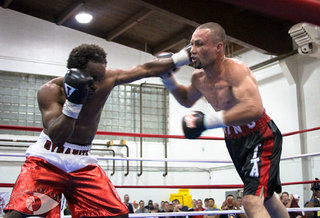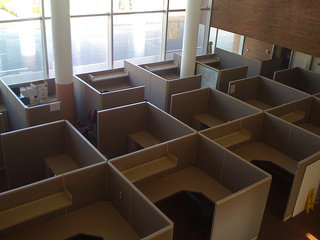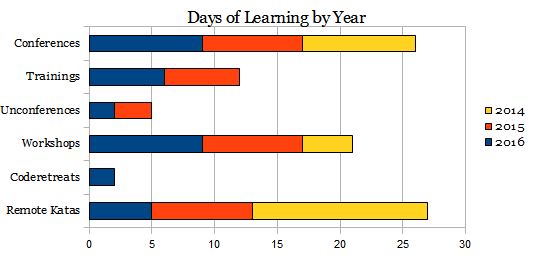Dirk, please tell us a bit about yourself.
I decided to become a software developer around the age of 16. I was into natural sciences, math, astronomy and computers at the time, and a lot of my older friends were studying to become software developers. I used to play with Lego all the time as a kid, and software development is a lot like building Lego things: you have building blocks - frameworks and libraries - and if you put them together in meaningful ways, you can create quite cool things.
My university studies did a good job of giving me a basic understanding of software development and of the limitations of what a computer can do. They also pushed me in the direction of curly braces, since our main projects were done in C++. I did a bit of work in Java and C++ before jumping on the C#/.NET bandwagon in 2003, and I've enjoyed the ride ever since.
The thing I am most proud of is the work I've done on Pickles, the open source living documentation generator. A living documentation is a documentation that is always up-to-date with the newest insights. Wikipedia is a living encyclopaedia, but unlike Wikipedia, with living documentation you do not need human intervention: assuming your specification is written in the Given/When/Then style of Cucumber or SpecFlow, Pickles will contain those (frankly quite boring-looking) specification files and turn them into a much better-looking web app. That means that non-technical people can read the specification files without needing a programming environment - or in other words: it becomes easier for non-technical people to participate in the discussions. Pickles has emerged as the leading living documentation generator, and receives regular code contributions.
 You are vegetarian and mentioned ethics of work several times during our conversations. Why does that matter to you?
You are vegetarian and mentioned ethics of work several times during our conversations. Why does that matter to you?I eat vegetarian for two reasons: I consider the way animals are treated in the food industry to be unethical (there is that word again). I do not object to people raising animals, killing them in a quick and painless way and eating them - while it is done in a respectful way. Stuffing stalls to overflowing with animals, treating them like inanimate objects, hauling them hundreds of kilometres to a place reeking of fear and death to slaughter them - that is a far cry from treating animals with the respect that every living creature deserves. The other reason is that I believe - based on the results of scientific studies I've seen - that by eating vegetarian, I significantly reduce my risk of cancer or cardiovascular diseases. I do not try to convince people of my views: everybody should decide for themselves, I detest proselytising, and the sad truth is that for every scientific study that supports my view there is another study that says that another diet is much healthier. So it comes down to what you choose to believe.
What other topics are you concerned about?
As with the animals, I believe we should treat other people and the environment with respect. Cheating people is not respectful. Doing work that harms people is not respectful. Doing work that damages the environment is not respectful. Therefore, work ethics are important to me. I believe women and men are of equal value and should be granted the same rights, the same opportunities and the same compensations for the same job. That makes me a feminist, and I am proud of that.
We live in a world where everybody with an Internet connection can watch hours of pornography, and yet it's rare to see a positive attitude towards sexuality. This is very obvious in the way society treats sex workers: they perform a very important service and ought to receive gratitude and respect for that - instead they are treated like dirt, the name of their profession is an insult, and in some regions they are indeed even prosecuted (but not their customers). I hope it goes without saying that I do not condone trafficking.
There is a chasm between the rich and the poor, and the chasm grows wider all the time. I begrudge no-one the spoils of their work. But I do not get that a manager should earn over 10 times more than regular workers. And I do not think it is right for "the rich" (be they people or companies) to exploit others for the sake of profit maximisation. I live a life that is affluent compared to many other places in the world, and I too have the desire to earn a bit more, but at some point enough is enough. At least in my opinion - many people with big salaries seem to think otherwise.
And then there is this fixation on working a lot. In the 1950s, when automated assembly and production became a thing, people dreamed of working only a few hours a day and devoting the rest of their time to family, friends, hobbies, art, ... In one of his short stories, renowned science fiction writer Isaac Asimov has one of the characters reminisce about the bad old days of a demanding four hour work week. Over half of a century later we are still working eight hours a day, and there is more and more talk about increasing that to 10 or even 12 hours a day. Something went wrong along the way.
What do you consider the biggest challenges for humanity?
I think the biggest challenge for humanity is the ingrained "us versus them" attitude of people. People tend to divide the world in two categories: us and the others. They will look after the interests of the "us" group, and ignore (or even sabotage) the interests of the others. Back in the days of hunter-gatherer societies this made sense: in order to survive, a human needs a tribe. So survival of the human becomes linked to survival of the tribe. A hunter-gatherer society usually operated in a scarcity environment, so it was important to make sure that the scarce resources were obtained by the "us" tribe and not by the other tribes. The "us versus them" mentality was a significant survival trait.
 Ever since the development of agriculture and civilization, there have been plenty of resources and it is no longer necessary to divide the world in those two categories. The "us versus them" way of thinking is so deeply ingrained in our genes that it is very hard to overcome. We see it in rivalries between supporters of football clubs, in nationalism, in racism, in ethnic cleansing, ... Much of organised religion falls into that category as well, compounded by the fact that you now have a higher authority that tells you that it is right and proper that you look after people of your of tribe and creed, while being content to let the others rot in hell or even helping them along on the way.
Ever since the development of agriculture and civilization, there have been plenty of resources and it is no longer necessary to divide the world in those two categories. The "us versus them" way of thinking is so deeply ingrained in our genes that it is very hard to overcome. We see it in rivalries between supporters of football clubs, in nationalism, in racism, in ethnic cleansing, ... Much of organised religion falls into that category as well, compounded by the fact that you now have a higher authority that tells you that it is right and proper that you look after people of your of tribe and creed, while being content to let the others rot in hell or even helping them along on the way.If humanity is to evolve beyond its current state, we will need to overcome to "us versus them" way of thinking. If we do not, we will be fated to go through endless cycles of war and peace. As population sizes grow, those conflicts grow in scale and destructiveness too.
What do you do to engage these topics? For example, did you take part in public protests, donate money to NGOs or sign petitions?
To be honest, I am not convinced public protests do much good. They gather a bit of attention, but next week the focus of the media will turn somewhere else and the protest and its causes will be forgotten. I think that continuously doing small things has a bigger impact. If over time enough people do small things continuously, that will achieve a more lasting effect than a public protest.
I eat vegetarian so the meat industry doesn't receive financial incentives from me. I separate my trash in recyclable categories. I do not own a car - while I do use car-sharing from time to time, the first option I evaluate for getting from A to B is always public transport. I sign the occasional petition, but like public protests, I do not expect much to come from that. I donate money WWF (World Wide Fund for Nature), an NGO that protect animal diversity.
While I could quit my jobs and do charity work, I rather keep doing what I can do best and earn my salary as usual, just working on "the right things". Do you think that is possible?
It is not easy. Our society is geared toward earning money, spending that money in exchange for enjoyable things, and not asking too many questions about where those things came from. Working as software developer or IT administrator for an organisation like Caritas might be a worthwhile thing, but the pay would be such that it would be hard to make ends meet. My current strategy is to work part-time, earning enough money to pay the bills and also having time left to enjoy life.
During your professional career, did you ever have to take difficult decisions because of your values and social responsibility?
I haven't encountered any moral dilemma's in my work so far, except perhaps the target industry of my former employer. I hope that should I be asked to do something that I consider morally wrong - like tampering with emission control measures - I will have the courage to say no and to go looking for another job.
How do you think about selecting industry, customer and project based on your values and social responsibility?
I think it is important to follow your conscience when selecting a job. If you do not, and you end up working in a field that runs counter to your values, you will suffer. You may not notice on a conscious level, but it does have repercussions. Recent studies suggest that if your own picture of reality is at odds with reality itself, your body will release large quantities of cortisol (the stress hormone). Increased levels of cortisol are linked to increased illnesses, increased anxiety and unhappiness. If the reality is that you are working in some job, but your values (your picture of how reality should be) tell you that you should not work there, then you are setting yourself up for a cortisol trip with all the problems thereof.
Let us be more specific: Would you work for an animal factory? Would you work for a company producing equipment for an animal factory? Would you work for a sweat shop exploiting kids in Asia? Would you work for a company producing equipment for such a shop? Do you have problems with any industries?
 I do not want to work for most of the companies you describe: exploiting animals or people is a no-go for me. Being accessory to the exploitation by working for a company producing equipment for an animal factory wouldn't sit right with me either. Even designing a website for such a company would make me uncomfortable. That said, I will do that kind of work if that's the only alternative. It may sound callous, but I would rather work for the company with the sweatshop than for the animal factory: there are far more human beings than animals, so I feel we need to devote more care to the well-being of animals.
I do not want to work for most of the companies you describe: exploiting animals or people is a no-go for me. Being accessory to the exploitation by working for a company producing equipment for an animal factory wouldn't sit right with me either. Even designing a website for such a company would make me uncomfortable. That said, I will do that kind of work if that's the only alternative. It may sound callous, but I would rather work for the company with the sweatshop than for the animal factory: there are far more human beings than animals, so I feel we need to devote more care to the well-being of animals.I would probably be alright with working in the porn industry: there is nothing wrong with porn in and of itself, although there sadly is much more stereotypical and demeaning porn than there is sex-positive porn. As for the military: I could imagine myself working on a defensive system, but not so much on an offensive system. Still, if the choice is between the military and an animal factory, I will work for the military (unless the project involves animals like the Navy Marine Mammal Program in the United States of America).
I do not have a problem working in the gambling industry. I have done it before, and have recently accepted an offer to do so again. I consider it the responsibility of every single person to decide if they want to risk their money in gambling. The odds of winning are low, but you will at most lose your own money if you bet wrongly. When a bank bets on the wrong horse, they can lose the money of all their customers.
Did you ever reject a customer based on your values?
My previous employer is active in the financial industry. At first I did not mind but over time I began to realise that the work I was doing benefits only the rich: it helped the rich getting richer. The other, far more numerous part of humanity did not benefit from my work. Additionally, the speculations of investments banks can have a massive negative impact on society, like the financial crisis in 2008.
When I went looking for a new job after five years in the financial industry, I looked in different industries. I was offered several positions in the financial industry, but I declined those immediately.
On the other hand, what would be industries or companies that you would love to work on?
I would love to work for an animal-related NGO like WWF. I believe that when we learn to treat animals and the environment better, we will also learn to treat other humans better. I would also love to work for a space agency or company. I believe that more knowledge is the key to a better world. And we need space travel: if humanity somehow manages to survive the next couple of hundred million years, we will need to go in search of a new home among the stars when the Sun increases in luminosity and renders Earth uninhabitable.
Thank you Dirk!
You are welcome!

















